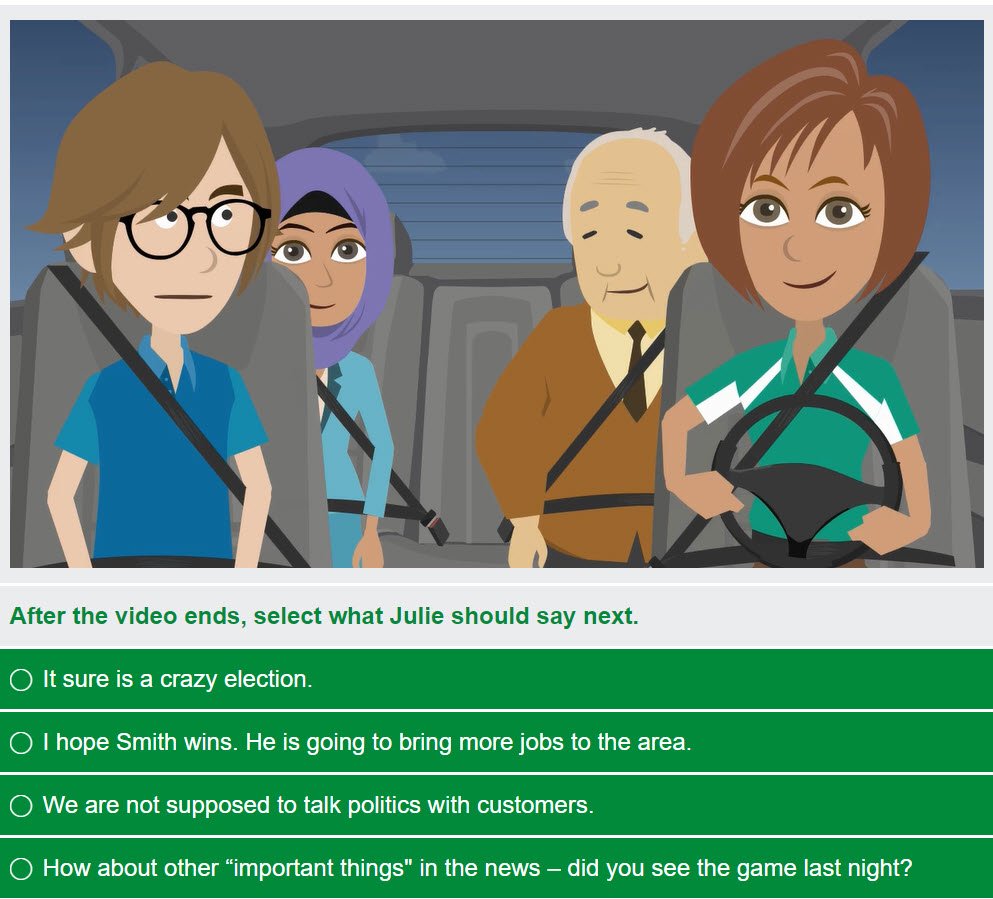Teaching People to “Drive with Care”
The e-learning course Driving the Courtesy Van with CARE won the 2020 International E-Learning Award for the best product in the e-learning category. The course was developed by EnVision Performance Solutions, which is based in Boston, Massachusetts. I recently spoke with Irene Stern Frielich, President of EnVision, about the development of this course, as well as with the course’s instructional designer, Alison McIsaac, who walked me through a part of the program.
Irene Stern Frielich, President of EnVision
This program provides instruction to both new and experienced van drivers for a service company on how best to achieve the four key goals in the CARE paradigm. The acronym CARE stands for:
Customer Focus
Ambassador
Responsibility
Empathy
On a macro level, employees taking the course are taught to view themselves as ambassadors for their company and to recognize that their behavior is always a reflection of the company as a whole. More specifically, they are taught how to approach each customer interaction with empathy and a sense of responsibility. The course features five vignettes of challenging customer service scenarios along with Q&A and best practices discussions with a virtual coaching component in the form of an avatar. The e-learning experience is immersive and experiential and succeeds in its learning goals due to the reality of the situations presented, the focus on the customer, and the coaching component.
Authentic Storytelling
The situations presented in the course were based on real-life scenarios. They were created in consultation with members of the service company’s taskforce and are based on actual situations which have occurred. There is a genuine feel to the situations and to the characters in these situations such as realistic anxious and the angry customers. The course’s engaging vignettes allow the user to recognize actual emotions, such as annoyance, defensiveness, and anger, which they can practice overcoming in order to deal with customers in a professional manner.
Each vignette tells a story, and the stories have a purpose. They allow learners to navigate realistic situations with recognizable characters in a safe and controlled environment where knee-jerk reactions and mistakes can be re-considered for more skillful responses either immediately or on a second try.
Customer Focus
The goal of a van driver taking this course is to deliver exceptional customer service. This requires the ability to see each situation from the perspective of the customer. The course’s vignettes are designed to clue the user in to the customer’s backstory, such as realizing that possibly the customer has arrived at the moment of interaction having just been through a chaotic situation. Working with such a customer requires responding with empathy.
The customer is also not a blank slate; each has their unique personality traits, styles and preferences. Van drivers need to act with respect and responsiveness.
Also, some general rules are taught such as knowing to avoid certain topics, such as politics, in conversations with customers.
Coaching
A coaching component is an integral part of this learning experience. The virtual coach, who provides feedback and discusses best practices, is based on an actual person in the company who is a highly visible and well-regarded HR professional. The coach avatar was even made to look and sound like the real person. This creates a natural level of respect and appreciation from the employees, and further motivates them to incorporate the feedback and strive to reach the 5-star goal of the program.
In sum, this e-learning program was developed in very close collaboration with the client company, resulting in a learning experience which feels real and engaging to the intended users; and which should ultimately help them to respond with greater CARE while on the job. Plus this is clearly a more efficient and less expensive means of training drivers in these skills than an in-person approach would be given the many van drivers who need the training.
About the author: Evelyn Levine works as a Training and Staff Development Director for the U.S. Courts. She writes on worldwide learning and development trends in public and private sectors. She can be reached at levinee@prodigy.net.


